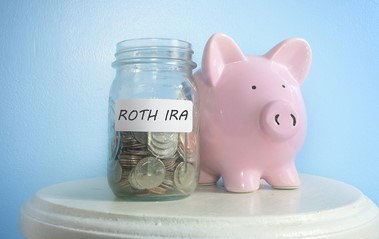Can I use a self-directed Roth IRA to fund my start-up?
I was asked this question by three different clients yesterday. Ever since it was revealed last year that Peter Thiel has apparently accumulated $5B in his Roth IRA this seems to be increasingly on people’s minds.
The short answer is that you probably cannot use your IRA to fund your start-up, because such an investment would likely be considered a prohibited transaction. But see below for a little more nuance.
Background
An IRA is an “individual retirement account”. It has an annual contribution limit of $6,000 for 2022 ($7,000 if you’re age 50 or older). There are two types of IRAs, traditional and Roth. In a traditional IRA you invest money pre-tax and pay tax when you take money out. In a Roth IRA you invest money after-tax and pay no tax when you take money out, as long as you take it out at allowable times.
You can contribute to a traditional or Roth IRA even if you participate in another retirement plan through your employer or business. However, you may not be able to deduct all of your traditional IRA contributions if you or your spouse participates in another retirement plan at work. Roth IRA contributions might be limited if your income exceeds a certain level.
A self-directed Roth IRA is a Roth IRA where you, the taxpayer, are allowed to specify what the IRA invests in. Unlike a normal IRA or 401(k) where you only have a few funds to choose from, a self-directed Roth IRA can invest in almost anything.
Prohibited Transactions
If a Roth IRA engages in a so-called “prohibited transaction” the IRA essentially explodes – it is treated as distributing all of its assets out and you bear the tax consequences. A prohibited transaction is a transaction between the Roth IRA and a “disqualified person”. Disqualified persons include:
- yourself and certain family members (spouse, ascendants, descendants, spouses of your descendants);
- entities that you and other disqualified persons in relation to your IRA own 50% or more of;
- any officer, director, 10% shareholder, partner, or individual earning 10% or more of the annual wages of an entity identified in the above bullet); and
- Any IRA trustee or custodian and/or service provider and individuals and entities related to them.
So, is the IRA’s investing in your start-up a prohibited transaction? If you and/or family members already own 50% or more of it, it is a prohibited transaction. Based on a 1996 case, it seems you might be able to use the IRA to fund the start-up if the IRA is the first shareholder (i.e., so it became an owner before you and family members owned 50% or more and thus were disqualified persons).[1] However, your IRA owned company likely cannot employ you without causing a prohibited transaction, so I don’t expect this will end up being as useful to the average investor as it was to Peter Thiel, who had early-access to stock of companies that have been extreme home runs – Facebook, PayPal, etc.
Mike Baker frequently advises with respect to matters affecting start-ups. He possesses a breadth and depth of experience in tax and employee benefits & compensation law that spans multiple decades. For additional information, please contact mike@mbakertaxlaw.com.
[1] Swanson v. Commissioner, 106 Tax Court 76 (1996).

